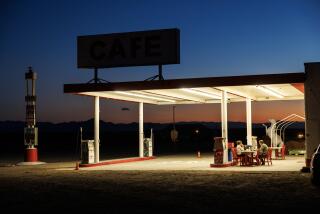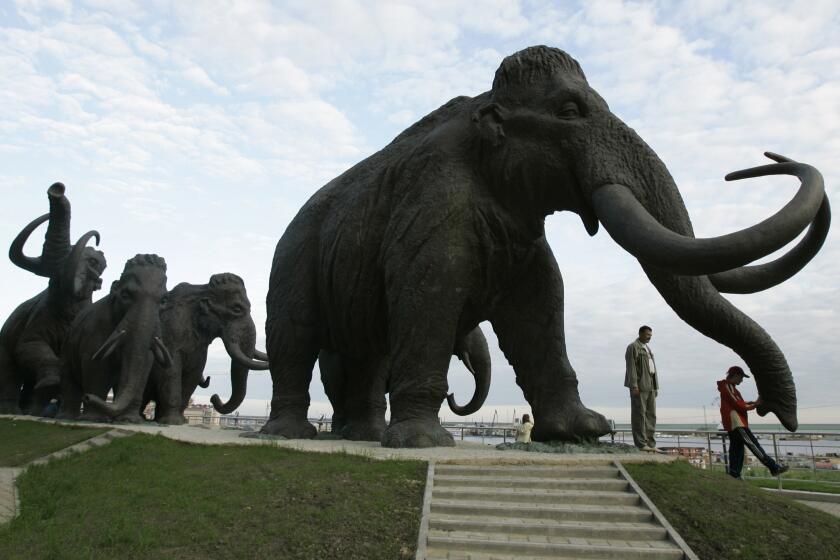The bard of Sin City’s last hand
Driving me around Las Vegas almost a decade ago, zydeco music blaring from his car stereo, Hal Rothman promised me he’d leave town when its population hit 2 million. He didn’t make it. Fast-growing Clark County is closing in on 1.7 million, but Rothman died late last month at the age of 48, a victim of Lou Gehrig’s disease.
My thoughts turned to Hal this week as I watched TV footage of the Stardust Hotel’s implosion early Tuesday. It hardly seemed fair for Vegas to lose two fabled 48-year-old icons around the same time.
Rothman was the ablest explainer of the new Las Vegas to the outside world. He moved to the city to teach environmental history at the university in the early 1990s, but soon found himself interpreting the astonishing story of America’s fastest-growing city to legions of carpetbaggers eager to figure out how in God’s name this once remote, Mob-infested desert gambling Mecca had become the country’s largest city born in the 20th Century and its fastest-growing metropolisnot to mention the city on earth with the most hotel rooms.
The town’s momentum was, and is, irresistible. The hubris of man overtaking nature. America’s last bastion of strong unionism. Conventions that host hundreds of thousands. An emerging global entertainment capital. Hal was there to explain all angles of the story, with boundless energy and enthusiasm.
Like all other self-respecting writers who parachute in to explain the meaning of it all, I looked up Hal as soon as I arrived in Vegas to research a whimsical book on the town. Hal couldn’t help himself. He was so enraptured with the tale unfolding around him and so eager that every fellow writer get it, he dropped everything to spend the day dragging mea relative nobodyaround town, generously giving me not only his time, but his insights.
“You want the full spiel?” he self-mockingly asked as we got in his car. Being guided around Vegas by Hal Rothman was like being taken backstage by the director at an extravagant Broadway musical. It was what it must be like to be shown around Miami by Carl Hiaasen, Los Angeles by our own Gregory Rodriguez; or what it must have been like to tour New York with E.B. White or San Francisco with Herb Caen at the top of their games.
Rothman would not have shed a tear for the Stardust at Tuesday’s implosion. “We love blowing up the old hotels,” he told me back in 1998. “Implosions reaffirm the city’s commitment to remain a mirror, depicting the nation’s ever-changing sensibilities.” Another Rothman theme: The brilliance of Vegas is that it can be anything you want it to be.
In his final published writing, a piece I asked him to write for our Current section last October, Rothman wrote that Las Vegas has become “the most malleable tourist destination on the planet. It makes the visitor, however ordinary, the center of the story, holding up a figurative mirror and asking: what do you want to be, and what will you pay for it?”
The Stardust, the world’s largest hotel when it opened in 1958, boasted an outrageous neon sign, $5 rooms, titillating Parisian showgirls and the Strip’s first sportsbook (the hotel inspired the 1995 movie “Casino”). It was all about making middle-class Americans the starring players in their escapist fantasy. Now the hotel’s owner, Boyd Gaming, is going to build up a fancy $4.4 billion megaresort complex named “Echelon” in its place. Further down the Strip, the MGM Mirage people have already started raising the most ambitious hotel/condo project anywhere in the nation, a $7 billion collection of buildings being fashioned by such renowned architects as Daniel Libeskind, Cesar Pelli, Helmut Jahn and Rafael Vinoly.
Like any good soundbite man, Rothman could indulge in hyperbolethe subtitle to his 2003 book, Neon Metropolis, was “How Las Vegas started the 21st Century.” And yet the city has exceeded the bullish expectations and predictions Rothman shared with me a decade ago.
And that’s partly a tribute to his own salesmanship, because no individual was more influential in shaping the Vegas story. His pitch: The nation needs a Las Vegas, an invented, whimsical, neutral space where people can escape.
There is no way Rothman would have left Vegas when it surpassed the 2 million mark. He couldn’t help himself.
Andrés Martinez is the editorial page editor of the Los Angeles Times.
More to Read
A cure for the common opinion
Get thought-provoking perspectives with our weekly newsletter.
You may occasionally receive promotional content from the Los Angeles Times.










